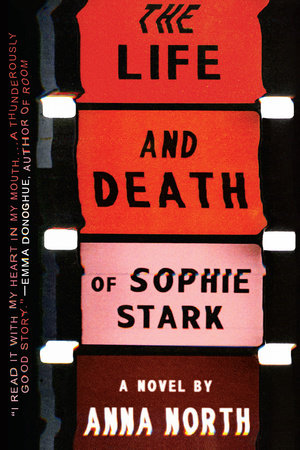

The Life and Death of Sophie Stark
By Anna North
By Anna North

Popular



Buy from Other Retailers:
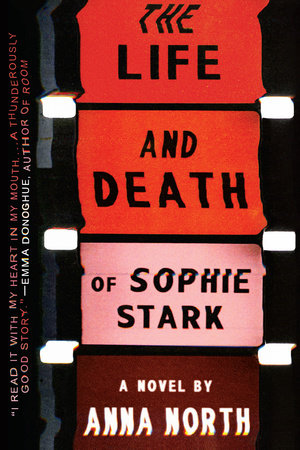
Buy from Other Retailers:
Published on Jun 14, 2016 | 288 Pages
Buy from Other Retailers:
“Last month I bragged about having purchased The Life and Death of Sophie Stark and now I can brag about having finished it. This book is deceptively simple–what seems like a collection of loose and easy interwoven recollections is actually thriller-paced, with mysteries revealed at every turn. The great mystery at the center is Sophie Stark, a totally unforgettable female antihero who conforms to absolutely none of our expectations and suffers deeply for it.”—Lena Dunham
“I read The Life and Death of Sophie Stark with my heart in my mouth. Not only a dissection of genius and the havoc it can wreak, but also a thunderously good story.” —Emma Donoghue, New York Times bestselling author of Room
“Powerful…This provocative book by North, a staff editor at The New York Times, illustrates just how far an artist will go in pursuit of authentic expression…North’s prose is as skillful as her protagonist’s shot list. Filled with ‘the sad fumbling of human love,’ Sophie’s story examines the relationship between art and suffering.”—Sarah Ferguson, The New York Times Book Review
“As with every experimental approach to art, this subsection of fiction has yielded plenty of successes and failures over the years. Fortunately, though, The Life and Death of Sophie Stark by Anna North definitely belongs in the former category. ‘Told from the perspectives of those who knew Sophie best—her brother, her girlfriend, [and] her husband [among others],’ the book offers one riveting, comprehensive, and ultimately moving account after another. Through these reflections, readers become enveloped not only in the essence and circumstances of Stark herself, but also in the histories, feelings, and traits of those who remember her. North creates vivid and relatable characters whose reactions, exchanges, and decisions are intriguing yet wholly realistic and unspectacular, allowing each moment to radiate subtle beauty and sincerity. By the end of it, Stark has affected the reader’s life as much as she has any around her…. Not only is The Life and Death of Sophie Stark a brilliant character study, but it also serves as an fascinating commentary on the balance between morality, artistry, genius, and integrity…. Suffice it to say that North crafted a gem full of complex personalities, tragic yet redeeming circumstances, and striking conversations and judgments. Her language strikes a lovely balance between poeticism and practicality too, making each sentence graceful and luminous without prioritizing stylishness over substance. In the end, The Life and Death of Sophie Stark is utterly captivating, surprising, and rewarding. You won’t forget about it (or her) for a long time.” —PopMatters.com
“One of North’s greatest skills is her ability to tell a story within a story. From the first chapter — where Sophie’s girlfriend Allison is telling a traumatic story about her childhood at a bar that Sophie hears and adapts into a film — readers encounter a multi-faceted work…. North’s novel is an intricate, abstract portrait of an artist as a young woman.” —New York Daily News
Rebecca Makkai, author of The Hundred-Year House and the forthcoming Music for Wartime, interviews Anna North about writing The Life and Death of Sophie Stark.
Rebecca Makkai: There’s something almost vampiric about Sophie Stark, the artist at the center of your novel—the way she uses people for her art. Do you think all artists do this to a certain extent? Is something lost when we see others not just as humans but also as potential material?
Anna North: I do think a lot of creative people have a tendency to use and reuse bits of real life in their work, and that can include the characteristics and life stories of people close to us. I think Sophie takes this to a bit of an extreme—it’s hard for her to imagine other people’s points of view, and even when she can, she doesn’t always care. So she uses people’s stories without regard for how it will make them feel. I—and I think most writers I know—try to be a little more careful, and avoid using the stories of our loved ones in ways that might hurt them. That’s easier in fiction, where you can always make changes, than in memoir, where the story of your life necessarily intersects with those of other people. And I know a lot of memoir writers have struggled with how much of other people’s stories they should tell.
I think there can also be a larger tension between being an artist and just being a person with relationships and obligations. (I think Jenny Offill gets at this in Dept. of Speculation with her idea of the “art monster,” someone who essentially eschews obligations.) Most artists figure out a balance between the two, but Sophie doesn’t, really. She almost always chooses being a great artist over being a good person, and that’s often good for her art—although, crucially, not always.
Rebecca Makkai: Sophie is a magnetic character, in more than one sense; not only are others drawn to her, but she’s the orienting factor in all their narrations. And we never get her point of view, which only adds to her allure. Did you ever consider using Sophie’s voice? Did you ever experiment with it outside of the draft?
Anna North: I never wrote anything from Sophie’s point of view. The other points of view came to me really naturally—some of them all at once, in a way that was hard to sort out at first. But Sophie’s never did, at all—I never felt compelled to write in her voice. Sometimes I think that’s because she doesn’t understand herself very well and would be bad at telling her own story. But that’s letting her off the hook a little bit—as the novel goes on, I think you realize she knows herself, and her shortcomings, better than she pretends she does. Still, I think there’s something mysterious at the core of Sophie—part of that mystery is self-created, but it’s still there. And I think that mystery took on a life of its own pretty early and prevented me from trying to write from Sophie’s perspective. It’s like she wouldn’t let me inside her head.
Rebecca Makkai: How do you compensate for the absence in the middle of the narrative? That absence—Sophie’s enigma—is the point, of course, and I think the story has to be told this way. But what were your considerations in writing, basically, a circle around her? You’ve made us feel we know her intimately, even while we’ve never gotten access to her thoughts. How did you do that?
Anna North: Part of it was just trying to write each narrator’s point of view as fully as I could, so that by telling their stories I would end up telling Sophie’s too. And part of it was that even though I never wrote from Sophie’s point of view, I did have a certain core idea of her. Maybe it wasn’t even an idea of what she’s really like—as I mentioned above, what she’s really like is a bit of a mystery, and maybe that’s true to some extent of anyone. But I did have a sense early on of the identity or identities she projects, the way she appears to other people, and I hope in getting that across I’ve helped readers know her, at least as much as anyone can.
Rebecca Makkai: Months after I read the book for the first time, Sophie’s physicality has stayed with me—specifically her hands, and the way she seems to emanate heat. Does a character’s physical presence come to you from the beginning, or later in the process?
Anna North: With Sophie it came to me very early—her androgyny, her sort of hawkish face, her big eyes. I had a few models, but I also had a really clear sense of her unique appearance almost before I wrote anything. I think that’s pretty unusual for me, though, and maybe an indication of how strong the myth of Sophie already was in my head before I started writing. With many of the other characters—as is often the case in my writing—I first had an idea of how I wanted them to behave, or of their back story, or of something they wanted, and at a certain point I had to go back and spend some time imagining what I wanted them to look like. Sometimes not very many of those physical details even ended up in the book, but I needed them in my head to visualize the characters in the physical world.
Rebecca Makkai: Interpolated between the other sections are reviews of Sophie’s work by a Benjamin Martin, who evolves from a pompous college student to a celebrated critic—one who has unwittingly affected Sophie’s life. He remarks that “it pained Sophie how poorly other people understood her.” If I were reviewing your book, rather than asking you questions about it, I think I’d feel the specter of Benjamin Martin hanging over me. Do you have certain fears about the way your work might be misread?
Anna North: It’s funny, I didn’t really think about how Ben’s reviews might correspond to reviews of the book until I wrote his final section, which isn’t quite a review but which does kind of respond to the action of the entire book. And I thought of him throughout not just as a critic of Sophie’s work but as a character whose life story is intertwined with hers; she influences him so deeply, and his reactions to her films are also influenced so much by what’s going on in his life at the time.
Where my own work is concerned, I think I have all the usual fears about people hating it or thinking I’m terrible. But I don’t worry as much about it being misread because I’m not sure that’s possible. There’s the artist’s idea of what a work’s about, of course, but I’m not sure that’s any more correct than anyone else’s. It’s certainly possible to misconstrue an artist’s intent—and Ben might argue that some fans of Sophie’s work have done that, or at least that they’ve misconstrued her—but I’m not sure it’s possible to misconstrue the work itself.
Rebecca Makkai: You live in Brooklyn, surrounded by artists and writers. (Or at least that’s my Chicagoan’s impression of Brooklyn, sort of the cartoon version of it.) Were you already familiar with the world of experimental film, or was it something you researched for the novel? Do you see Sophie’s work as speaking to what’s going on in the film world right now?
Anna North: I’ve always liked movies, and I’ve always had fairly broad taste in them, but I had very little expertise when I started this book. It was a huge help to read books by filmmakers and to talk to people who had made films. I still don’t feel like anything close to an expert, though, and I don’t necessarily think Sophie’s work speaks to what’s going on in film right now. I think her story is more about how artists are perceived and remembered in general than about any particular artistic moment.
Rebecca Makkai: The cover Blue Rider Press has given the book is gorgeous—it’s as if we’re too close to a face to see it clearly, which feels wonderfully appropriate—but it’s not an obvious choice for this story. If I asked you a year ago what you imagined on the cover, what would you have said?
Anna North: I probably would’ve said something more obviously tied to movies; maybe something with a camera or a strip of film. But I love the way the cover looks—it almost reminds me of the Mona Lisa, or a Botticelli painting. I also didn’t think too much about the cover in advance either for this book or for America Pacifica. I think I’m just too close to the material. The cover designers come to the books with a fresher eye, and luckily I’ve been really happy with what they’ve come up with.
Rebecca Makkai: It wasn’t until my second novel that I started to recognize what some of my own thematic concerns were—not the themes of the books themselves, but the issues I’m bound to grapple with again and again as a writer. What do you think this book has in common with your first novel, America Pacifica? On the surface they’re very different, but are they asking any of the same questions?
Anna North: I think both books deal to some degree with the idea of a hero or icon. America Pacifica is very consciously a quest story, and I thought a lot about heroism and about other stories of heroes as I was writing it. Sophie is a lot less heroic than Darcy, the main character of America Pacifica. But she does become somewhat iconic, a larger-than-life figure for her fans and even for some of the people close to her. And the book does concern itself with her legacy and with the myth she builds around herself and allows to be built around her.
Both Darcy and Sophie are also pretty isolated—Darcy becomes a hero in part because she loses her mother, and Sophie pushes a lot of people away in the process of becoming iconic. I think I’m interested in the costs of heroism, and in the idea that in becoming heroic you might actually lose some of your humanity. And I’m interested in looking at these questions through female characters, because stories of heroism have traditionally focused on men (though, of course, that’s changing).
Rebecca Makkai: Sophie’s development can be marked by her succession of wildly different film projects; so I have to end by asking what’s next for you, and to what extent it’s a departure from your previous books.
Anna North: What I’m working on next is still in its very early stages, but it does deal with a lot of the issues of heroism I talk about above. It might be a little more like America Pacifica in that it’s set in the future, and it involves a young person’s journey far from home (though it’s not focused on an apocalyptic scenario the way America Pacifica is). I hope it also incorporates what I learned writing The Life and Death of Sophie Stark, especially when it comes to portraying the ups and downs of close relationships. Darcy is so alone for much of America Pacifica, and I think The Life and Death of Sophie Stark forced me to think about how people influence each other, for good and for ill. I hope these are lessons I can take into the next book, and I hope the next book will teach me something new.
ISBN9780399184475
Published onJun 14, 2016
Published byBlue Rider Press
Pages288
Dimensions5-1/2 x 8-1/4
Author
Anna North
Anna North is a graduate of the Iowa Writers’ Workshop, and her writing has appeared in the San Francisco Chronicle, The Atlantic, Glimmer Train, Nautilus, and Salon; on Jezebel and BuzzFeed; and in the New York Times, where she is a staff editor. The author of America Pacifica, she lives in Brooklyn, New York.
Learn More about Anna North
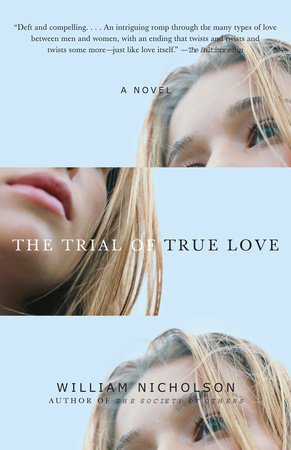

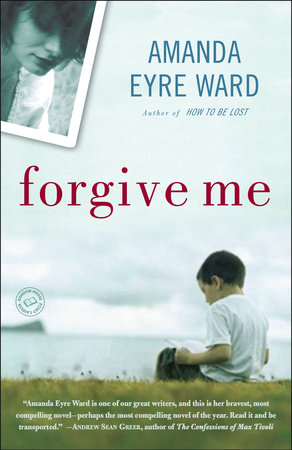



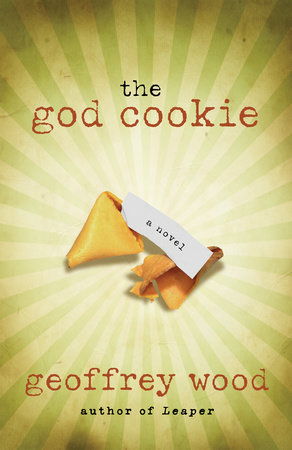

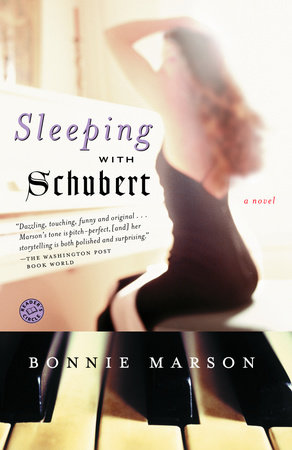

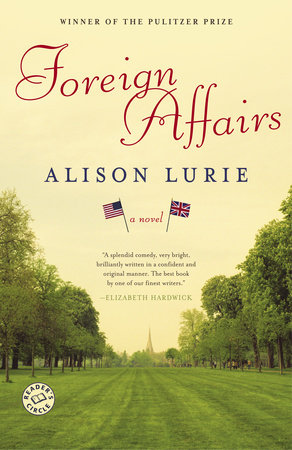

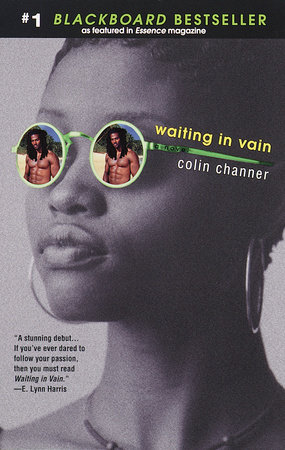



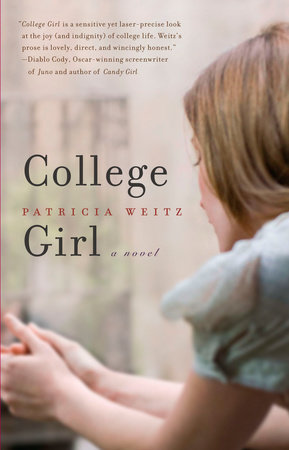

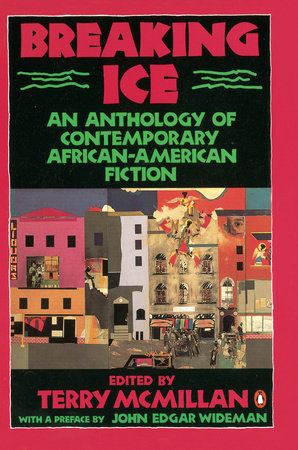
Visit other sites in the Penguin Random House Network